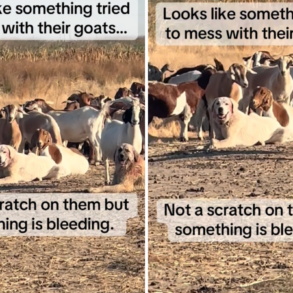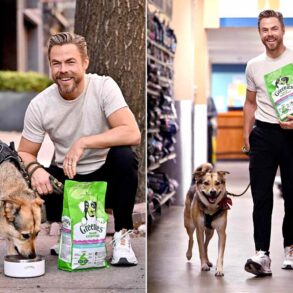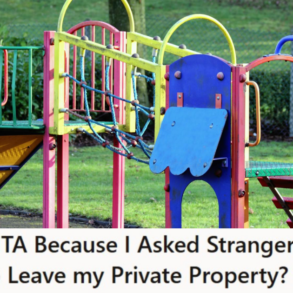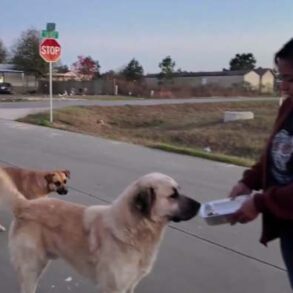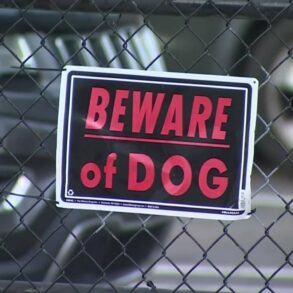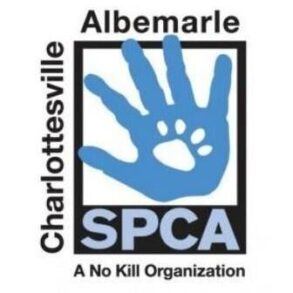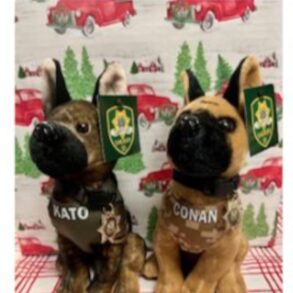WADENA — When two dogs, a mother and daughter duo, were surrendered to the Wadena County Humane Society in early 2024, Julie Lovin, who serves as the nonprofit’s director of operations, knew right away she saw potential in the younger dog named Tatia.
So she reached out to Lucille Belch, a former Wadena County Humane Society board member, and current dog trainer for the 4-H community.
ADVERTISEMENT
“Lucille is connected with the Patriot Assistance Dogs out of Detroit Lakes,” Lovin said.
It wasn’t long before Linda Wiedewitsch, founder and executive director of Patriot Assistance Dogs, came to the Wadena County Humane Society to spend some time with Tatia to see if the well-mannered, 1-year-old mixed breed dog would be a good fit for the program.
“At the end of the testing, they felt there was potential in Tatia and took her for training as an assistance dog,” said Lovin.
Founded in 2011 by Wiedewitsch, the retired Detroit Lakes police officer said starting Patriot Assistance Dogs was really her eldest daughter’s fault.
“I have two daughters and they each asked permission at different years, but each of them asked permission to raise a puppy for the Leader Dogs for the Blind organization for a 4-H project,” Wiedewitsch said. “And then mom was hopelessly hooked.”
The family would go on to raise 24 puppies that would become leader dogs for the blind. In 2006, after 31 years in law enforcement, Wiedewitsch retired and opened Lucky Dog Boarding and Training in Detroit Lakes, and later she would go on to establish the Marshmallow Animal Shelter. The shelter would serve as a city impound for stray animals in Detroit Lakes and seven surrounding communities.
Wiedewitsch attributed her desire to establish Patriot Assistance Dogs to her background in law enforcement and experience working with dogs.
ADVERTISEMENT
“So we started Patriot Assistance Dogs in 2011, because we had so many dogs coming through Lucky Dog through the city as impounds. We had so many dogs, nice dogs, dogs that, you know, had manners, dogs that you could tell it had a collar on until recently,” said Wiedewitsch.
Many of the dogs that came through the shelter were never claimed and they needed homes.
“And I refuse to euthanize a healthy dog,” she said.
Contributed / Linda Wiedewitsch
With a vision to both serve animals and veterans, the mission of Patriot Assistance Dogs became “Rescued Dogs Rescuing Veterans,” where U.S. military veterans are paired with highly trained, certified psychiatric service dogs at no charge to the veteran.
Because of the high rate of military veterans being diagnosed with mental health issues — post-traumatic stress disorder, traumatic brain injuries, anxiety and depression — and the need for solutions both for surrendered dogs and veterans, Wiedewitsch said the goal of establishing Patriot Assistance Dogs was twofold.
“So we hit upon the idea of screening the dogs, the dogs that wanted to work, that had the right temperament to be service dogs, train them and then give them to military veterans at no charge to the veteran,” said Wiedewitsch.
Since its inception in 2011 Patriot Assistance Dogs has matched 300 veterans with dogs, including Tatia, who help veterans with a wide range of needs. Different from an emotional support animal, service animals are highly-trained and Wiedewitsch said the distinction is the dog is trained to take specific action to mitigate a specific symptom.
ADVERTISEMENT
“Meaning we train our dogs to help ground the veteran, to help keep them in the here and now,” said Wiedewitsch. “To alert them to impending anxiety attacks, and to take over their hyper-vigilance.”
Wiedewitsch said the dogs are also trained to assist veterans with a wide range of mental health needs. From interrupting night terrors and mitigating road rage, to dogs who are taught “inside-outside” techniques to help their veteran with leaving or entering a situation that may be difficult or triggering. Dogs are also trained to sense when their veteran may be having a seizure or other medical issues.
Dogs can also sense when the veteran feels closed in Wiedewitsch said.
“When things are closing in, when they are experiencing claustrophobia, the dogs know to get their veterans outside and take them to the nearest exit,” she said.
Like Tatia, a majority of the dogs that go through the Patriot Assistance Dogs program are mixed breeds. Dogs who enter into the program undergo a screening process including medical screening for hip/elbow issues and overall health. According to Wiedewitsch, the ideal age is about a year old and dogs that weigh anywhere from 45-60 pounds. In some instances, larger dog breeds will be identified to assist a veteran who struggles with vertigo.
“We don’t look for the high end, real real busy real active dog and we don’t look for the couch potato. We look for that temperament somewhere in between,” said Wiedewitsch
Paula Anderson, head trainer for Patriot Assistance Dogs, said because of Tatia’s wonderful temperament she was and always will be a staff favorite.
ADVERTISEMENT
“We had countless offers to adopt her if she didn’t make the program, including one of the veterinarians,” said Anderson in an email to Lovin on Tatia’s progress. Anderson also said that although Tatia’s progress wasn’t always as smooth, including surviving a bout of Canine Infectious Respiratory Disease Complex, also known as kennel cough, Tatia persevered and was paired with a veteran in July.
In addition to the dogs going through anywhere from four to nine months of training, veterans also undergo training as well as a screening process to ensure the fit is right for both the dogs and veterans. In addition to an application process, veterans must also struggle with mental health issues and have the desire and ability to care for their service dog.
Something that Wiedewitsch said helps to ensure the dogs will be cared for properly. However, training is also based upon the needs of a veteran, which is why working alongside health care providers is a vital piece of the Patriot Assistance Dogs application and screening process.
“They have to have a relationship with a veterinarian clinic or a letter from a veterinarian stating that they will take on the service dog as a new client,” explained Wiedewitsch, “Because we’re very particular about the medical care these dogs get.”
In September, Tatia alongside her veteran completed the Patriot Assistance Dogs program with a graduation ceremony. Despite setbacks of being surrendered to the shelter and health issues, Tatia was a success in the program.
“She did well and her veteran placement would have only been with a veteran who could commit and support her health with a little extra than most of our dogs,” Anderson said.
Patriot Assistance Dogs is located in Detroit Lakes and serves veterans in Minnesota, North Dakota, South Dakota, Iowa and Wisconsin. For more information visit
https://patriotassistancedogs.com/
.
This post was originally published on this site be sure to check out more of their content.




